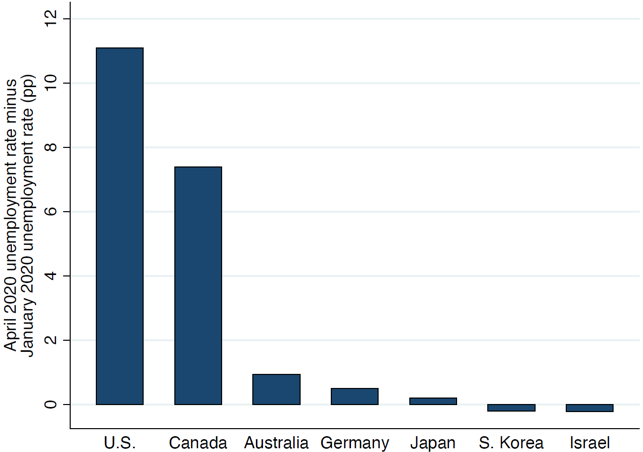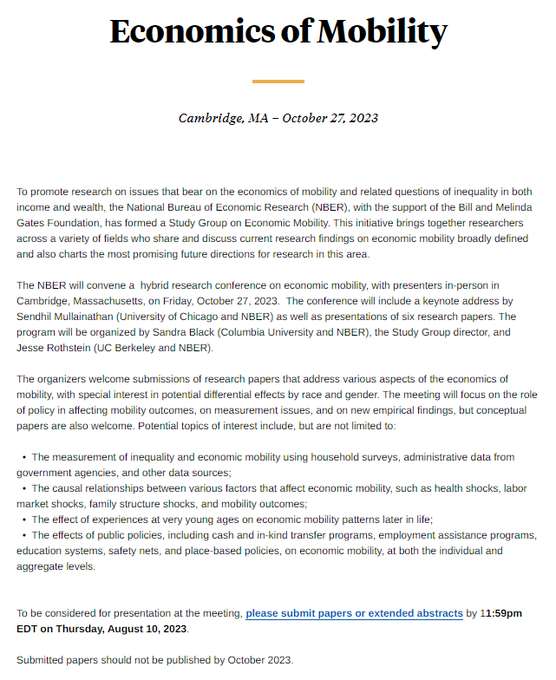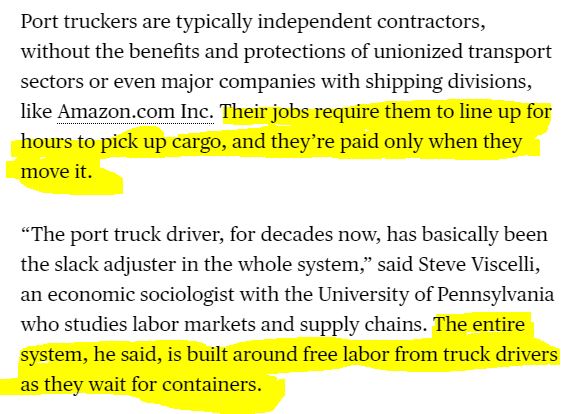
Jesse Rothstein
@rothstein_jesse
Followers
7,627
Following
1,126
Media
34
Statuses
1,654
Economist, public policy wonk, professor @UCBerkeley , faculty director @CAPolicyLab . On BlueSky at
Joined April 2020
Don't wanna be here?
Send us removal request.
Explore trending content on Musk Viewer
Flamengo
• 290079 Tweets
ゼンゼロ
• 138375 Tweets
水分補給
• 101648 Tweets
ゼンレスゾーンゼロ
• 97635 Tweets
Atlético
• 87925 Tweets
エアコン
• 87182 Tweets
Independence Day
• 75323 Tweets
GRACIAS FURIA
• 69274 Tweets
熱中症気
• 61767 Tweets
Yuta
• 56976 Tweets
Zenless Zone Zero
• 44636 Tweets
Happy 4th of July
• 38568 Tweets
Inumaki
• 27513 Tweets
WE LOVE LINGORM
• 27191 Tweets
クーラー
• 27057 Tweets
स्वामी विवेकानंद
• 24746 Tweets
#IndianCricketTeam
• 23713 Tweets
BRUNO HENRIQUE
• 23021 Tweets
穂高先生
• 21525 Tweets
Rambo
• 15694 Tweets
Wiggy G
• 14171 Tweets
#第五人格6周年おめでとう
• 12835 Tweets
Last Seen Profiles
I’m hesitant to disagree with
@mattyglesias
after he says such nice things about my work. But I think he gets the headline wrong. That’s especially strange because he gets the key points right. A thread. (1/17)
31
353
1K
Right
#1
: The best thing we could do to promote equity within higher education is to better fund the less selective schools, especially community colleges, where most students from lower-income and Black/Brown families go. (2/17)
6
49
574
Right
#2
: Selective colleges should grow, a lot. It would be better if highly selective colleges set a bar and admitted everyone above it, or randomly selected above the bar until big enough to take all of them.
(3/17)
5
29
374
This just isn’t right. In fact people get approximately the same earnings return per year of school whether or not they graduate. I’d rather get someone to graduate than not, but I’d rather send them to one or two years of college than none at all. (Exception: For profits.)
"Students only benefit if they graduate [college], whereas schools benefit so long as they keep collecting tuition."
@mattyglesias
on the broken economics of the U.S. higher education system via
@bopinion
3
12
70
21
89
356
Matt suggests “automatically admit the Top X% of SAT-scorers.” That would yield a class of rich students from elite pvt schools, and v few from low-inc schools. Very different from Top X% by class rank as in Texas or CA. (See
@zbleemer
CA paper: ) (14/17)
3
26
348
@dynarski
& others emphasize a few low-inc students who have/could get high SATs, and would be left out if SAT is dropped. But there are more low-inc students with high GPAs who can’t get high SATs and are excluded now. And they would do better in college if admitted. (15/17)
11
23
292
This is an excellent thread. And to add a more technical point: What Winship is worried about are income, not substitution, effects. To argue that we should worry that income effects will lead to different choices is to say that we actively want people to be limited by poverty.
6
54
260
I am increasingly convinced that it doesn’t do to respond to the EJMR cesspool by saying “ignore it.” That’s easy for those not targeted by it, or already secure in their careers to say; much harder for early career, women, POC.
#EconTwitter
(1/5)
5
39
248
If those were the takeaway, it would be a great piece. But
@mattyglesias
ties this to an argument that “the anti-SAT push is misguided” that really doesn’t hold up. (4/17)
1
11
223
Some references:
My testimony to UC:
Background paper:
Technical paper:
Texas 10% paper:
@zbleemer
paper on CA % policy:
(17/17)
4
22
197
When we shut down the economy in 3/2020, it was inevitable that we’d have some inflation as things restarted. Overall, the cycle has been milder than we had any right to expect — no mass starvation, no depression. What is the story in which it could have gone better than this?
6
58
186
NEW: A short piece (with
@dannyyagan
,
@marthagimbel
) on how the U.S. labor market compares with others during the pandemic. Many peer countries have had hardly any job loss. Worksharing works. Containing the virus works. Doing neither does not.
8
113
172
There’s not much I can do to help the students going through this. But I can say this: EJMR is a cesspool, its existence is a stain on our profession, and any decent person should ignore it. I’m proud to be associated with the
@berkeleyecon
students who are advocating for change.
4
13
144
I'm very happy to finally bring this paper across the finish line. It originated at a seminar
@Econ_Sandy
gave at Berkeley in 2012 or 2013.
2
10
144
I'm very proud of this newly accepted paper. My first published RCT -- and there are many of them! With
@ElizabethLinos
,
@arparnar
,
@mattunrath
, and Allen Prohofsky. Thanks to everyone at
@CAPolicyLab
who helped out.
4
10
135
I’m very pleased to join the board of the Upjohn Institute
@UpjohnInstitute
. I’ve long admired the excellent labor market research they do, and am grateful for the opportunity to be a part of it, and to learn more about their other programs.
6
5
130
NBER is holding a conference on economic mobility on Dec. 2.
@Econ_Sandy
and I are organizing, and
@S_Stantcheva
will give the keynote. The conference program is open to all, NBER affiliates or not. Please submit your papers by the Sept. 15 deadline!
1
40
127
Tagging various coauthors, though none are responsible for the above:
@mkurlaender
@econsarahreber
@Econ_Sandy
@JeffDenning
10
5
110
A reimagined unemployment system would treat the jobless like customers, not criminals, while helping them stay afloat as they find their next gig....It would be easier to ramp up in times of crisis and better serve the modern workforce...
via
@voxdotcom
4
29
107
@CAPolicyLab
anticipates hiring a predoc/research assistant at our Berkeley site, to work with me,
@jrlacoe
,
@edizonross
, and others. Good empirical research exp. for those considering PhD in econ, policy, soc, etc. Diverse candidates strongly encouraged!
5
58
102
I drafted this thread before I read
@TimothyNoah1
's excellent piece, but we came to basically the same place, and he said it better.
1
9
98
The biggest news: 90% of new UI claimants in CA in first half of April expected to be recalled to their previous jobs. Up from 40% before the crisis.
Thread: New analysis on daily initial Unemployment Insurance claims in California provides detailed snapshot on which workers, regions, and industries have been hit hardest by the
#COVID19
crisis:
2
22
41
2
33
95
@Econ_Sandy
and I are co-organizing an NBER conference on the Economics of Mobility in October. Please send us your papers!
0
37
93
A clear illustration of how our supply systems are built on exploiting workers at the weak links of the chain. It also may explain why they can’t respond quickly—who is going to buy a truck to join this business in response to what may be a temporary surge in demand?
2
22
82
@mattyglesias
This shows that you *can* use essays to predict family income. It doesn't show that that is how UC actually uses them. If a college wants to privilege the privileged, no change in available info will stop them. But not so clear for a college that wants diversity.
2
8
76
To all those dunking on me for this quote: It is *not* an endorsement. Next sentence: “There’s just no scenario where the tens of millions who are on unemployment insurance right now would have jobs if it were a couple of percentage points cheaper to hire them.”
Economists don't necessarily think Trump's payroll tax cut would be counterproductive, just inefficient and insufficient for the moment.
“Directionally, it’s not a crazy answer." --
@rothstein_jesse
“Not the best tool in our arsenal.” --
@J_C_Suarez
8
7
35
7
10
71
@imbernomics
My 9th grader excitedly told me he was finally learning math he knew I hadn’t learned, because the curriculum had changed since I was in HS.
Oh, what is that?
LSRLs. You didn’t learn those, right?
What are LSRLs?
<eyeroll> Least Squares Regression Lines
Oh…
2
0
69
@gulogulo37
@mattyglesias
Yes, I am. I am agnostic about whether some test should be included. But definitely get rid of the SAT.
0
0
66
@besttrousers
@PeteTheCitizen
As I read it, most of the paper is about arguing (not very convincingly) that income effects are large. I missed the argument that income effects are relevant. If one doesn’t share the view that poor women don’t know what is good for them, his case evaporates.
2
4
66
Q for development
#EconTwitter
: I’ve been offered an honorarium to review a Ph.D. thesis at an Islamabad university. I don’t need the $, and it can do more good there. What Pakistani charity should I ask them to direct the payment to?
16
3
69
I have a new piece in the Washington Post with
@econjared
on long-term scarring effects of recessions and the urgency they add to aggressive policies.
3
37
64
Come work with us at the
@CAPolicyLab
. Among other things, this could be a great way to have a predoc experience while doing real policy work.
cc:
@econ_ra
3
37
60
A follow-up thought to this: One reason I am proud to be at
@UofCalifornia
is that a very large share of the new top-tier universities created worldwide in the last, say, 70 years are UC campuses. Others should join the party!
Right
#2
: Selective colleges should grow, a lot. It would be better if highly selective colleges set a bar and admitted everyone above it, or randomly selected above the bar until big enough to take all of them.
(3/17)
5
29
374
0
10
63
This is an awesome tool. Really highlights the inequities created by Prop 13.
0
17
62
I'm proud that
@CAPolicyLab
was able to help this important project happen.
Restorative justice drastically reduces recidivism for teenagers facing medium-severity felony charges. RCT shows 19pp (44%!) drop in P(rearrest) within 6 months that persists 4 yrs after! Awesome paper by
@yotamshemtov
, Steven Raphael and Alissa Skog! 👉
2
46
172
0
9
56
Very nice to see this creative paper come to fruition! Congratulations,
@TomasEMonarrez
!
0
9
55
Scream it from the rooftops! We bought time, at a very high price, and then Trump wasted every second of it.
0
12
53
I have a new piece using data from
@joinhomebase
to measure the impact of COVID-19 on the labor market in real time. See
@alexbartik
's rundown -- also with
@mattunrath
, Marianne Bertrand, and Feng Ling.
@CAPolicyLab
@irleucb
,
@UChiPovertyLab
,
@RustandyCenter
How has the COVID-19 crisis been affecting hourly workers at small businesses? I've been working with
@joinhomebase
along with Marianne Bertrand, Feng Lin
@rothstein_jesse
@mattunrath
@CAPolicyLab
@UChiPovertyLab
@RustandyCenter
@ChicagoBooth
to find out [1/10].
3
61
113
1
14
54
This seems really egregious, both as a legal interpretation and as policy. Imagine the idea on the product side — no, you can’t sell that widget to someone else for $2 because I’ve bought it in the past for $1. It is no more defensible here.
2
6
53
Come work at the California Policy Lab!
Driven by data and passionate about public service?
Come join us! CPL's Berkeley site is hiring an Operations Director and Postdoctoral Scholar- please share widely ->
#EconTwitter
#highered
#California
0
19
15
2
29
51
Just posted an erratum to the
@joinhomebase
analysis I've been doing recently (w
@AlexBartik
, Bertrand, Lin, and
@mattunrath
). We were dramatically understating the importance of layoffs at firms still in operation. Corrected results here:
1
8
50































































